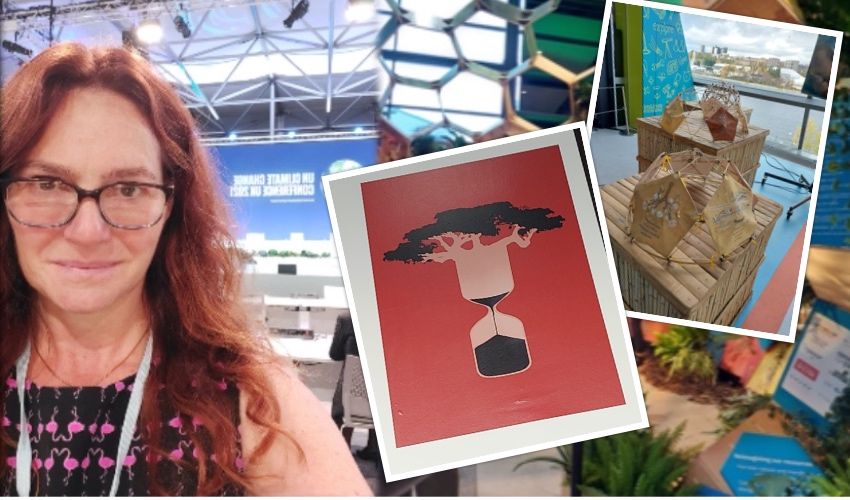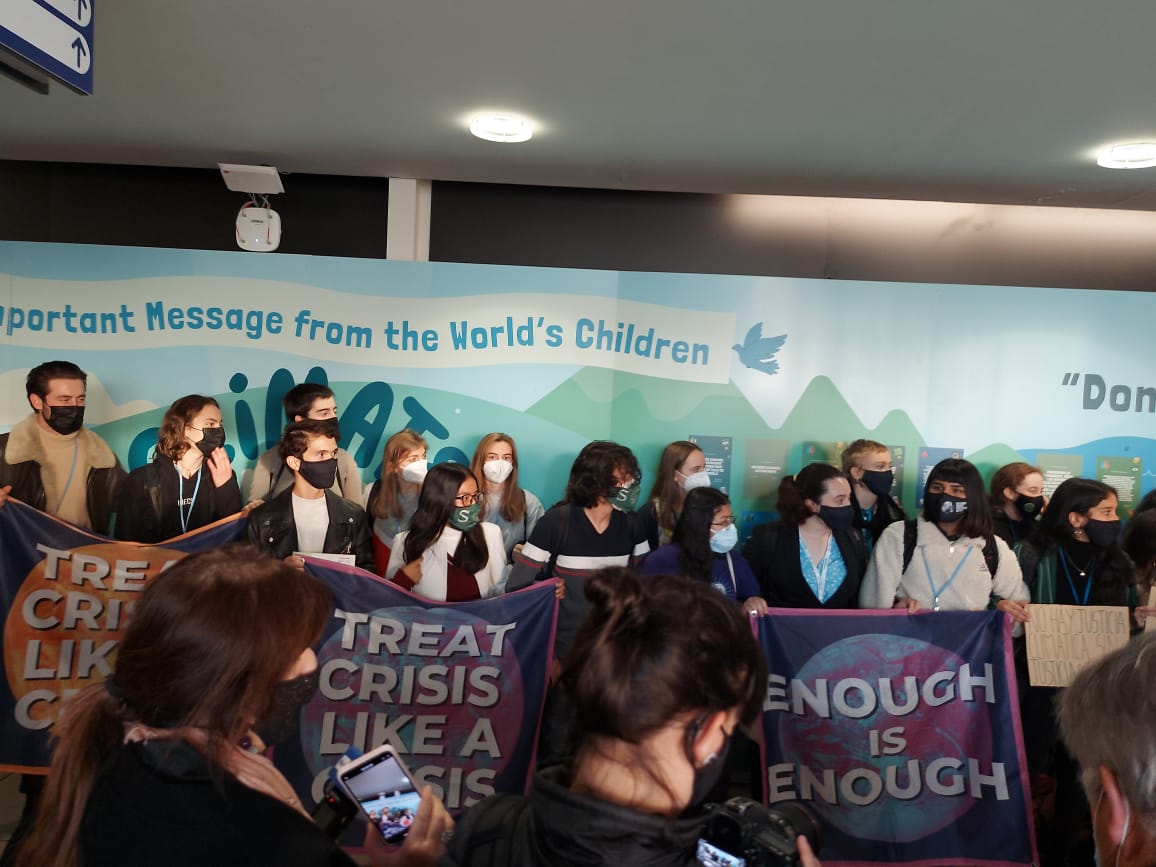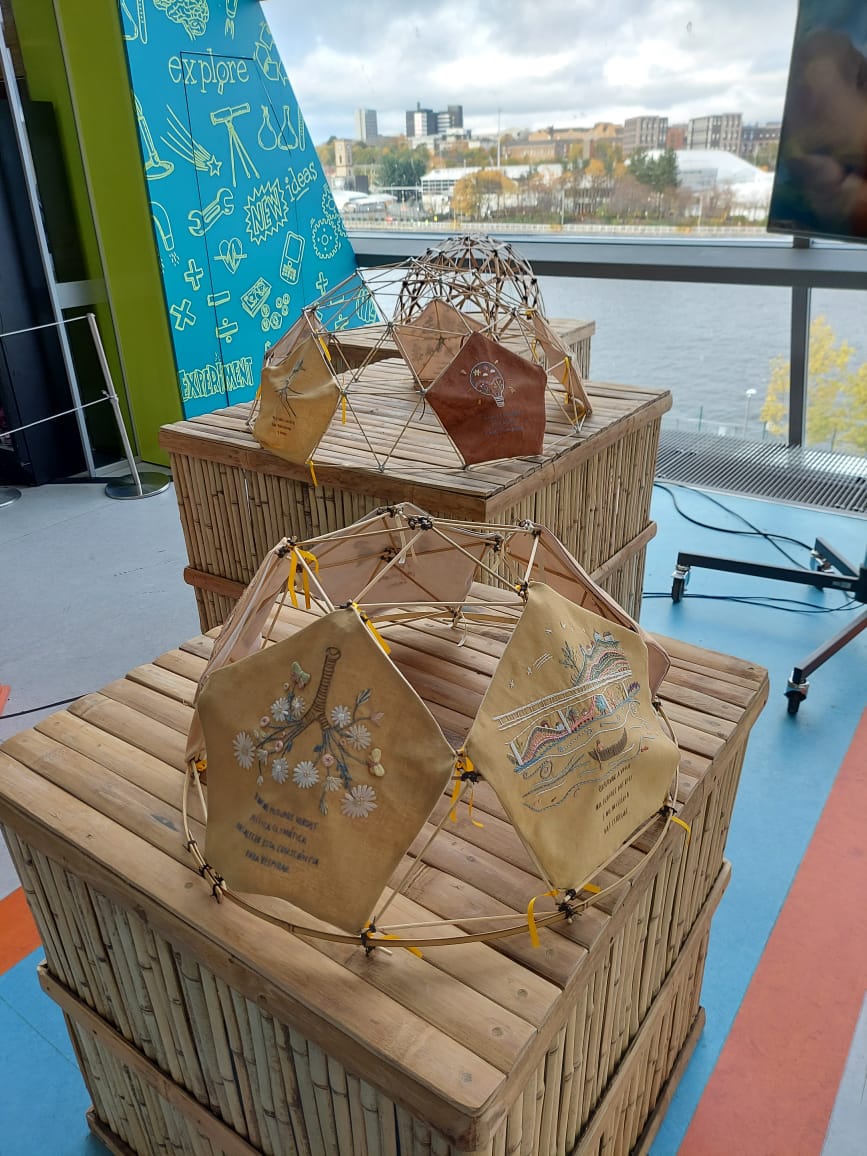


Friday was the fourth and final day of Dr Louise Magris’s time at COP26. In her last blog, the island's Head of Sustainability and Foresight reflects on education and the importance of the ‘business end’ of the conference.
After last week’s big announcements from global leaders in Glasgow, it is expected that much of the real detail of international efforts to reduce global warming will be agreed and released.
Jersey sent a small delegation to the conference, including External Relations Minister Senator Ian Gorst and Dr Magris, who is the leading civil servant on the island's plans to decarbonise.
Express asked Dr Magris to write a blog on her experiences in Glasgow this week.
Here's her fourth and final update...
In the ‘blue zone’ today it was ‘Youth and Public Empowerment Day’. This theme resonated strongly with the work we have been carrying out throughout 2021 with Jersey’s young people, and wider community, through the Climate Conversation and Citizen’s Assembly, at www.climateconversation.je.

Pictured: Friday was Youth and Public Empowerment Day at COP26.
Our people-powered approach to tackling the climate emergency declared in 2019, is a strong example of the type of consensus-building being taken globally. I reflected that Jersey held its own as I listened to panels and speakers describe how they are building accelerated action from the community up as well as downwards from their leaders, energy suppliers and financiers.
The day finished with Jersey’s education pledge being chosen to feature on the main stage at the joint event of education and environment ministers summit - Together for tomorrow: Education and Climate Action.

Pictured: One of the posters seen by Dr Magris at COP26.
My official role at COP26 came to a close with the hopes of youth speakers around the role of education in creating climate-positive futures ringing in my ears.
I will be keeping up with week two avidly from back home. There is much more to come: the role of nature in providing solutions; gender; adaptation to the already unavoidable impacts of climate change; cities; transport and science and innovation.
These are all the further building blocks to achieve the necessary and timely change to hit the emissions reductions targets and stabilise our climate.
Yes, it’s easy to be cynical, to make accusations of tokenism and feel hopeless and fearful and I understand those that do.
There’s no doubt that, globally, we should have done more, and sooner. However, I will form my final opinion on the success or otherwise of COP26 at the end of the conference negotiations and then by the actual progress we measure in the next few years both globally and locally.

Pictured: Some of the artwork created by young people at the conference.
My sense is that we are closer than we have ever been to a global vision and agreement for a better future. It’s certainly not perfect, and there’s always much more to do in the face of the scale of the challenge.
As agriculturalist and environmentalist George Washington Carver said, where “there is no vision there is no hope” and today I’m not going to let the perfect be the enemy of the good.
I’ve seen genuine vision and a route to delivery from people who hold the power, money and scientific expertise - we hold personal agency for change in our own hands ... perhaps we should all have hope and act accordingly.
Comments
Comments on this story express the views of the commentator only, not Bailiwick Publishing. We are unable to guarantee the accuracy of any of those comments.